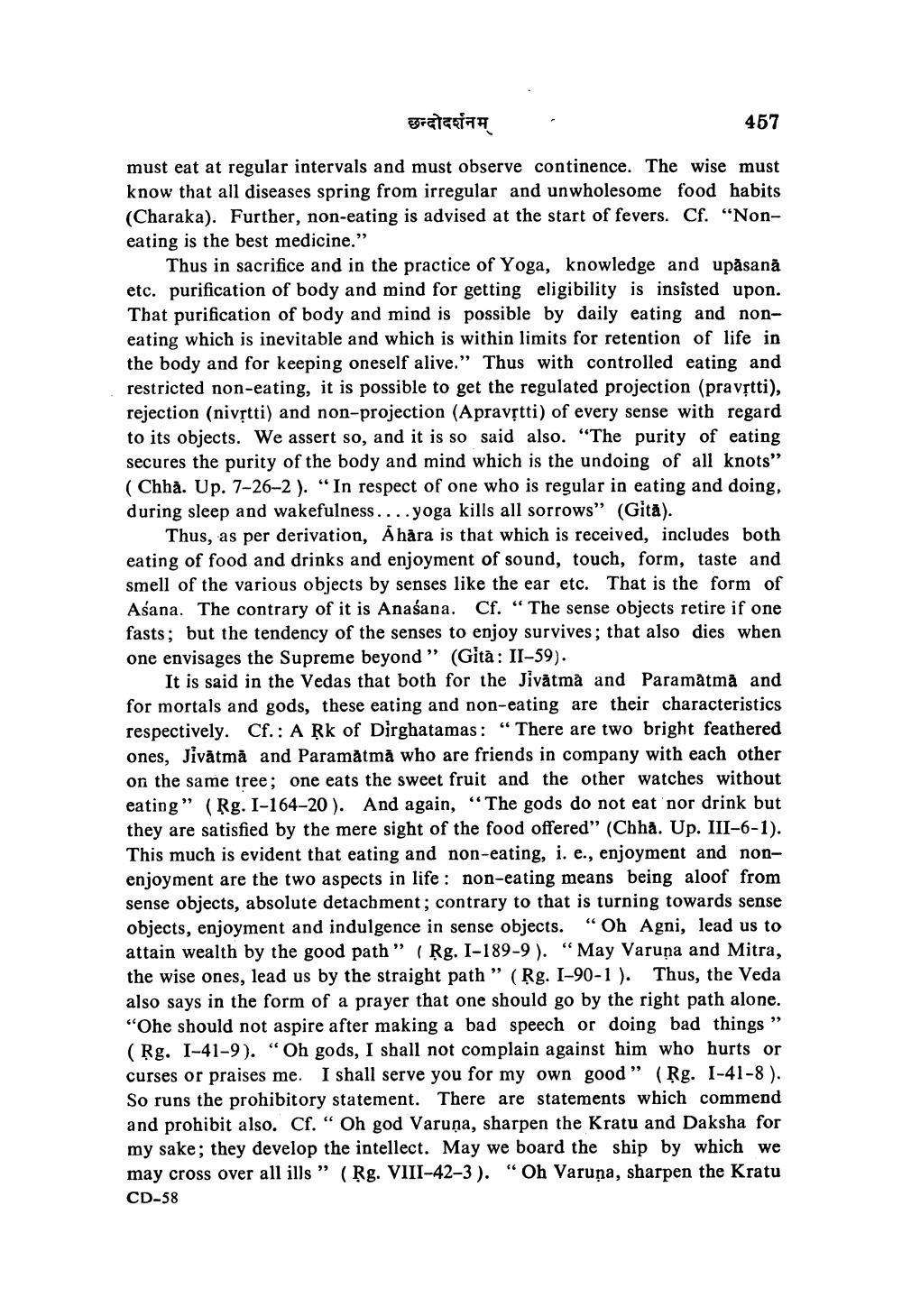________________
छन्दोदर्शनम्
must eat at regular intervals and must observe continence. The wise must know that all diseases spring from irregular and unwholesome food habits (Charaka). Further, non-eating is advised at the start of fevers. Cf. "Noneating is the best medicine."
Thus in sacrifice and in the practice of Yoga, knowledge and upāsanā etc. purification of body and mind for getting eligibility is insisted upon. That purification of body and mind is possible by daily eating and noneating which is inevitable and which is within limits for retention of life in the body and for keeping oneself alive." Thus with controlled eating and restricted non-eating, it is possible to get the regulated projection (pravṛtti), rejection (nivṛtti) and non-projection (Apravṛtti) of every sense with regard to its objects. We assert so, and it is so said also. "The purity of eating secures the purity of the body and mind which is the undoing of all knots" (Chha. Up. 7-26-2). "In respect of one who is regular in eating and doing, during sleep and wakefulness....yoga kills all sorrows" (Gita).
Thus, as per derivation, Ahara is that which is received, includes both eating of food and drinks and enjoyment of sound, touch, form, taste and smell of the various objects by senses like the ear etc. That is the form of Asana. The contrary of it is Anaśana. Cf. "The sense objects retire if one fasts; but the tendency of the senses to enjoy survives; that also dies when one envisages the Supreme beyond" (Gità: II-59).
It is said in the Vedas that both for the Jivātma and Paramātmā and for mortals and gods, these eating and non-eating are their characteristics respectively. Cf.: A Rk of Dirghatamas: "There are two bright feathered ones, Jivātmā and Paramatmå who are friends in company with each other on the same tree; one eats the sweet fruit and the other watches without eating" (Rg. I-164-20). And again, "The gods do not eat nor drink but they are satisfied by the mere sight of the food offered" (Chha. Up. III-6-1). This much is evident that eating and non-eating, i. e., enjoyment and nonenjoyment are the two aspects in life: non-eating means being aloof from sense objects, absolute detachment; contrary to that is turning towards sense objects, enjoyment and indulgence in sense objects. "Oh Agni, lead us to attain wealth by the good path" (Rg. I-189-9). "May Varuna and Mitra, the wise ones, lead us by the straight path" (Rg. I-90-1 ). Thus, the Veda also says in the form of a prayer that one should go by the right path alone. "Ohe should not aspire after making a bad speech or doing bad things " (Rg. I-41-9). "Oh gods, I shall not complain against him who hurts or curses or praises me. I shall serve you for my own good" (Rg. I-41-8). So runs the prohibitory statement. There are statements which commend and prohibit also. Cf. "Oh god Varuna, sharpen the Kratu and Daksha for my sake; they develop the intellect. May we board the ship by which we may cross over all ills" (Rg. VIII-42-3). "Oh Varuna, sharpen the Kratu CD-58
457




